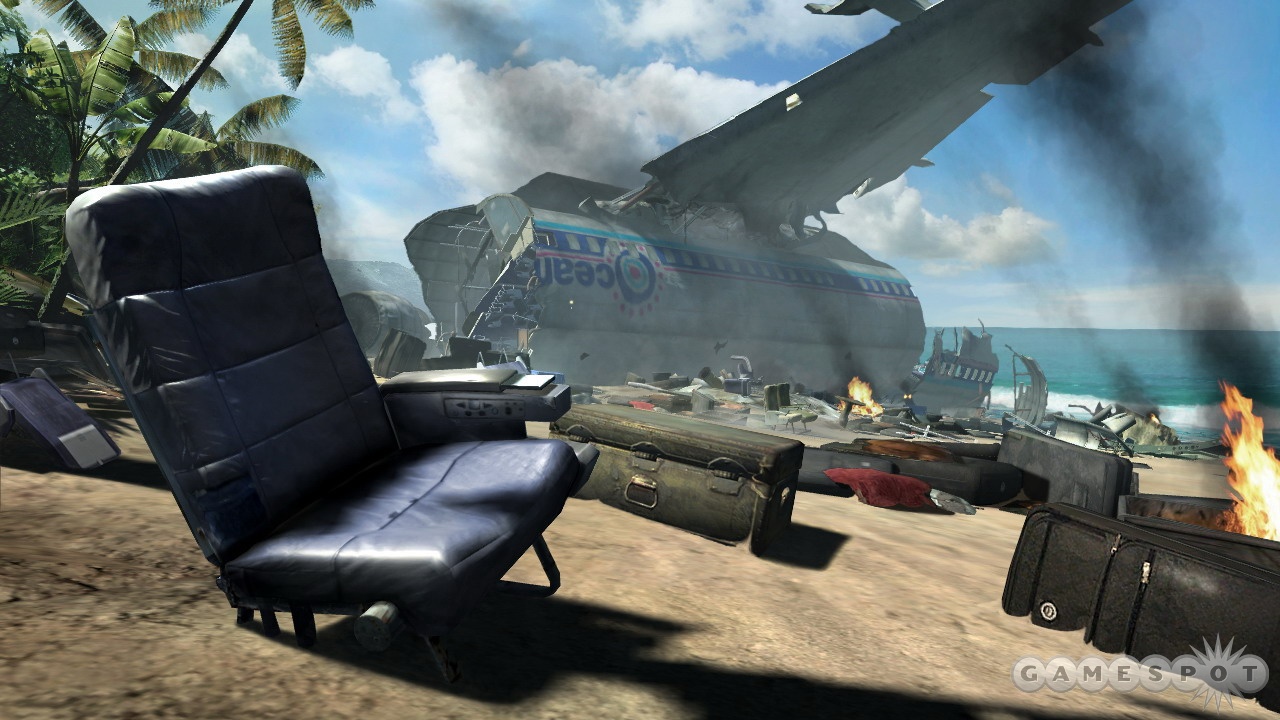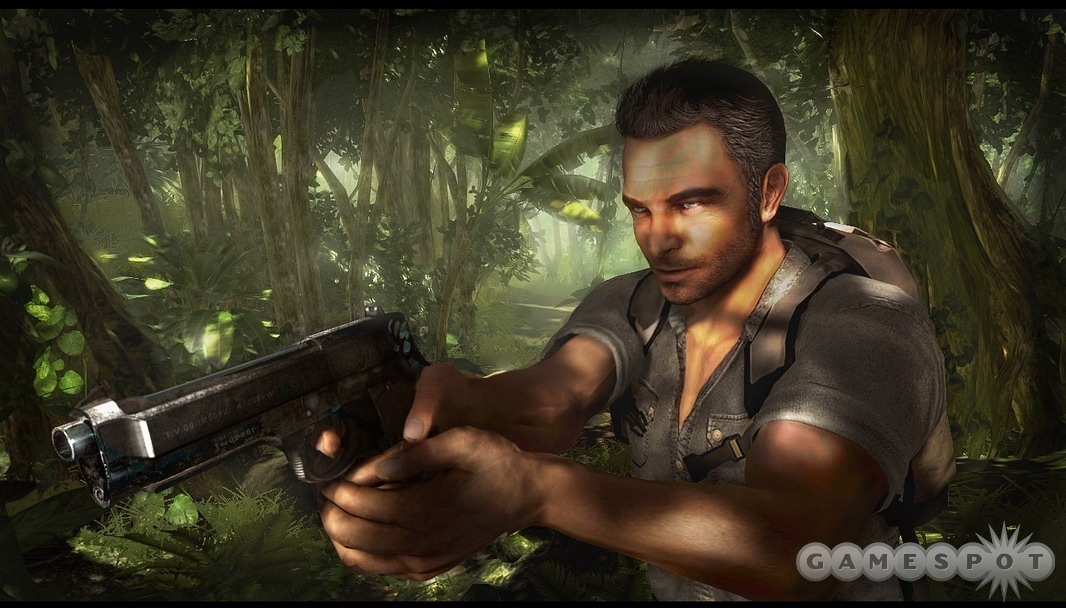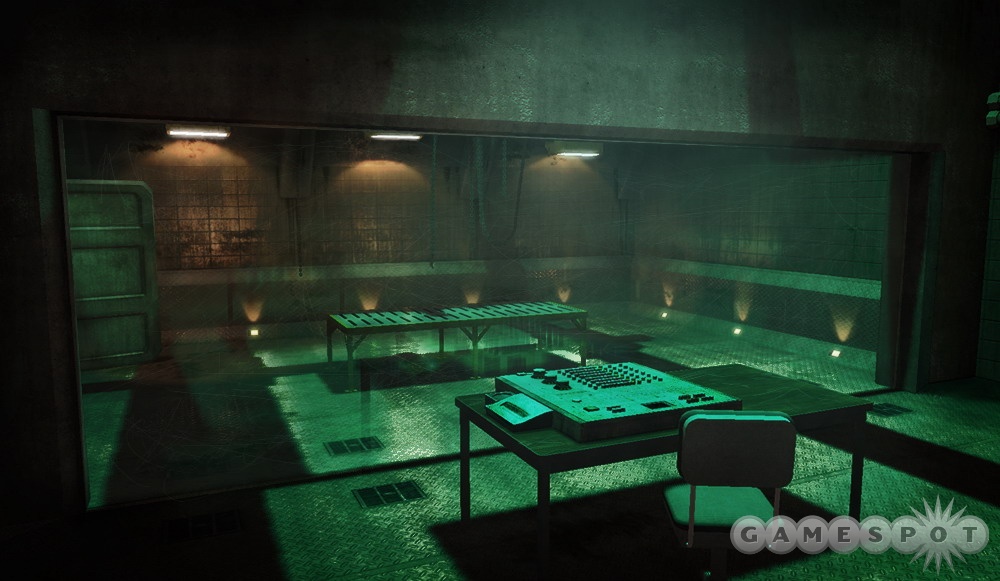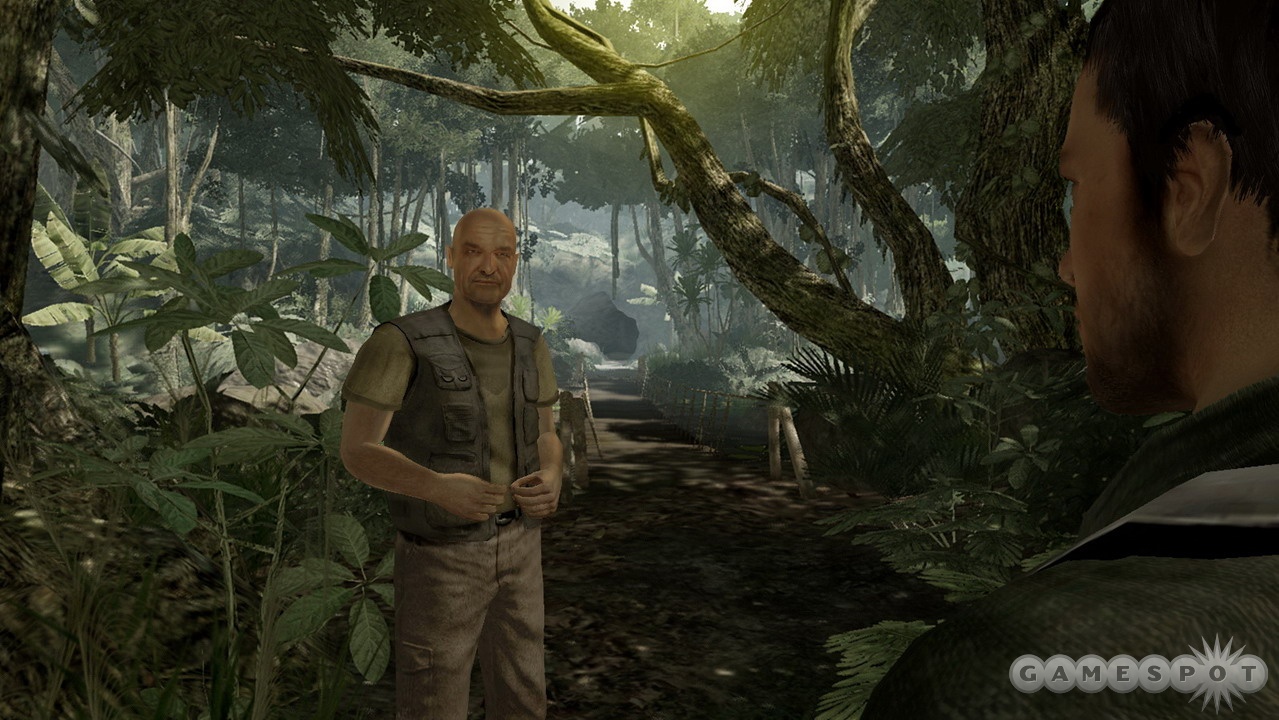Lost: Via Domus Hands-On
We find our way to Ubisoft's San Francisco office and score some quality time with a near-finished version of the Lost game.
If you're a fan of the Lost TV show, you're no doubt aware that the long wait for season four is almost over. If you're also a fan of games, which is implied by the fact that you're reading this, you should likewise be aware that a game inspired by the popular show is scheduled for release next month. We've seen very little of Lost: Via Domus since it was announced more than 18 months ago, which is why we jumped at the chance to check out a near-finished Xbox 360 version of the game during a recent visit to Ubisoft's San Francisco office.
Set during the first two seasons of Lost, Via Domus is an adventure game in which you'll assume the role of an all-new character whose storyline intertwines with those of other castaways instantly recognizable from the show. Your name is Elliott, you were a passenger on the Oceanic 815 flight out of Sydney that crashed on an uncharted island somewhere in the Pacific, and--like oh so many game protagonists before you--you're suffering from amnesia. None of the other survivors on the island know who you are except for one, and given that he makes it clear early on that he dislikes (read: wants to kill) you, there's really only one person who can help you to remember, and that's you.

You'll piece together your fragmented memories via playable flashback sequences that involve more shooting than perhaps any other aspect of the game--with a camera, that is. It seems that your character was a photojournalist in his previous life, and after being afforded a look at torn pieces of a photograph, your goal in each flashback sequence is to take the photo depicted in them. For example, the first flashback takes place while flight 815 is boarding and tasks you with shooting a photo of the handcuffed fugitive Kate being handed a bottle of water by the marshal who's escorting her onto the plane. Having successfully completed that flashback--in which you'll also have an opportunity to look around the plane and at your precrash possessions--you'll remember seeing Kate's predicament in the present day and will have the option to broach the subject with her in a subsequent conversation.
It should come as no surprise to anyone even vaguely familiar with Lost that Via Domus isn't a shooter; there's not nearly enough ammunition on the island for that. Rather, Lost: Via Domus is a story-driven adventure game in which action scenes will serve to punctuate quests that primarily involve exploration and conversation. The only truly action-oriented sequence that we saw during our demo, in fact, was when we were chased through the jungle by the Black Smoke (it's exactly what it sounds like: a big, black cloud of smoke). The chase played out much like those you might have previously experienced in platform games: We used the analog stick to run and to avoid areas of mud and water that slowed us down, while two of the controller's face buttons were used to jump and to duck obstacles, respectively.

The start of your adventure more or less coincides with the start of season one. You find your way to the beach with some help from Vincent (that's the dog), and when you arrive you see that Jack (that's the doctor) is busy trying to help other would-be survivors. True to character, he wastes no time enlisting your help. You're asked to deal with a potentially dangerous fuel leak from the plane engine that's still roaring on the beach. This puzzle, like many others in the game, involves arranging differently shaped fuses on an electrical board to divert power where it's needed. Fuses, we're told, were scattered all over the island when Oceanic flight 815 crashed, and considering that these puzzles can be solved only if you have the correct fuses in your possession (it's highly unlikely that you ever won't), you'll do well to pick up any that you see.
Your primary objective in Lost: Via Domus, as is alluded to in the Latin portion of the title, is to find a way home. Of course, you'll be exploring plenty of locations along the way, and although the events of the game are set solely during seasons one and two of the TV show, there will be opportunities to visit locations that were never shown until season three. Furthermore, Lost: Via Domus will let you explore environments that have never been fully revealed in the show, including the Black Rock interior and the area behind the mysterious magnetic wall inside the Swan. Other locales that ended up not being story-critical in the game (we know of at least two, but don't want to spoil the surprises for you) can still be explored, though they're present only as hidden Easter eggs that you'll have to jump through hoops to reach.

Interestingly, Lost: Via Domus is divided up into episodes similarly to the show, even to the extent that each episode starts with a recap of the previous one and ends with a show-style cliffhanger. Besides being faithful to the experience of watching Lost on TV, the episodic structure of the game has afforded the development team a relatively easy way to have time pass on the island as your adventure progresses. For example, while playing through the first episode, you'll notice that the castaways aren't really functioning as a group yet and are wandering around the beach looking for possessions lost in the accident. If you attempt to talk to the character Sun, you'll also notice that she responds only in Korean. In later episodes, just like in the show, Sun will speak in English (she kept her language lessons a secret from her husband), and the beach is covered with makeshift shelters constructed from crash debris and other materials found on the island.
To talk too much about the events that we saw transpire during our demo would risk spoiling the story that's such a big part of Lost: Via Domus. We can tell you that you'll be doing a lot more with your favorite characters from the show than just talking to them, though. For instance, you'll get to go hunting for boars with Locke and, given that even the game doesn't include a map of the island, you can assist Sayid in his efforts to draw one. We can also tell you that you'll be spending plenty of time in darkened labyrinthine tunnels where, among other things, you'll need a good supply of flashlight batteries. Like everything else in the castaways' postcrash world, batteries are a valuable commodity that you'll need to either scavenge for yourself or acquire through trades with other characters. Practically every item that you pick up on the island has an approximate monetary value associated with it, so, for example, you might find that you're able to swap a $50 "Apollo" candy bar for any number of more commonly available (though much more useful) items.

We didn't get to spend nearly as much time with Lost: Via Domus as we would've liked on this occasion, particularly considering that this was our first opportunity to play it and the game's release is only a little more than a month away. We came away from our meeting with Ubisoft feeling confident that fans of Lost will get a kick out of joining their favorite characters on the island, but we're not entirely convinced that the game's conversations and exploration will be nearly as interesting for the rest of you. The action sequences and puzzles certainly have a more universal appeal, but those appear to have been designed with the TV audience rather than gamers in mind, and are unlikely to pose a significant challenge. We look forward to bringing you more information on Lost: Via Domus in the not-too-distant future.
Got a news tip or want to contact us directly? Email news@gamespot.com
Join the conversation